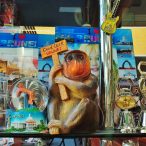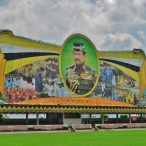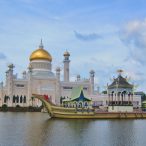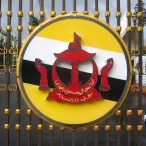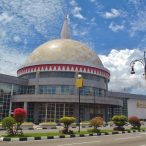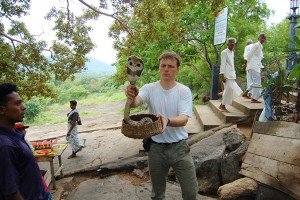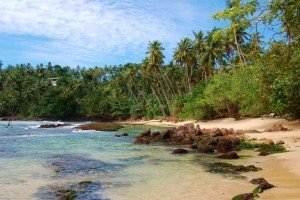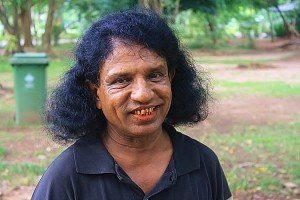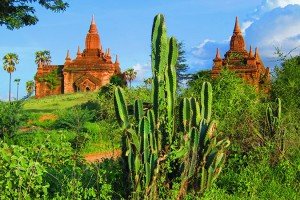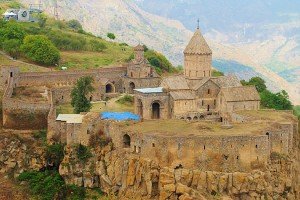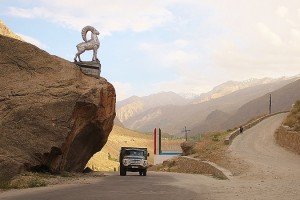Brunei
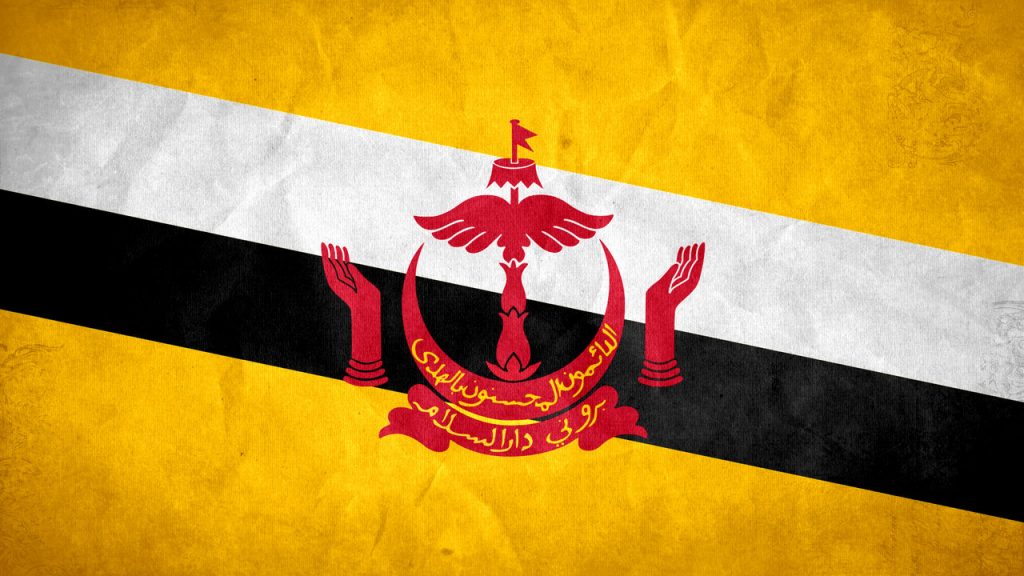
Official name: Negara Brunei Darussalam
Population: 437 525
Area: 5765 km²
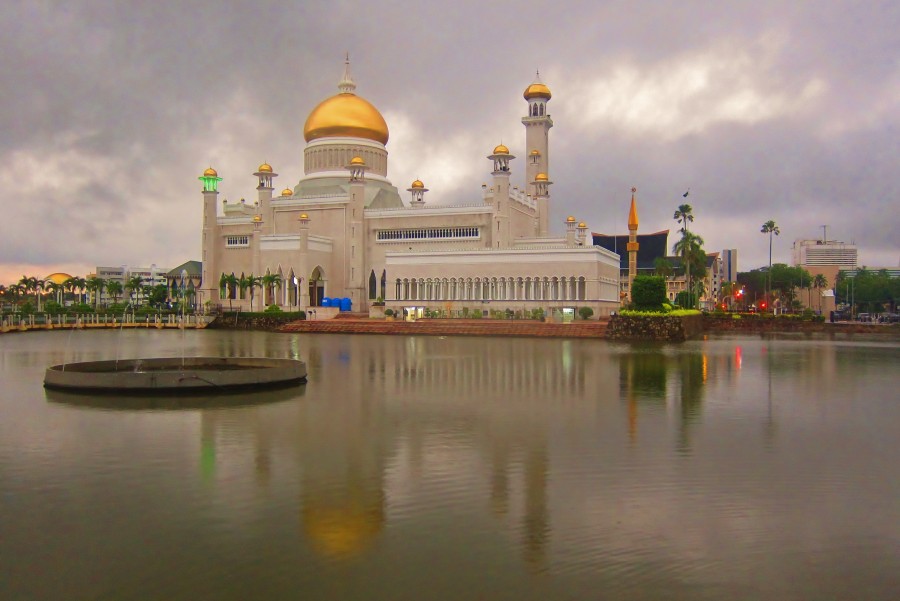
Gallery
Tourist attractions of Brunei, Brunei – the present times, history of Brunei.
Tourist attractions of Brunei
Brunei is a very under appreciated tourist country, and it is sometimes called “a boring oil-rich Muslim state”. It is true that there is not much going on in Brunei, and that the country’s economy is based on oil. However, Brunei has an attractive small capital Bandar Seri Begawan (BSB), and it has the largest village on water – Kampong Ayer. In Brunei there is also a river and a mangrove forest, with residents such as proboscis monkeys and crocodiles. In the capital BSB, there is a huge Omar Ali Saifuddien mosque, with a large pond, and on Brunei river there is the largest village built on wooden posts – Kampong Ayer, with population of about 30,000 people.
Brunei has some interesting museums too, and the most popular one is the Royal Regalia Museum, although there are other ones, such as the Brunei Museum and the Maritime Museum. Brunei strikes with its magnificent exoticism, beautiful flora and fauna, and not only in the national parks, but also on the streets. In addition, Brunei offers good shopping, beautiful beaches, and good Malay, Chinese and Indian foods.
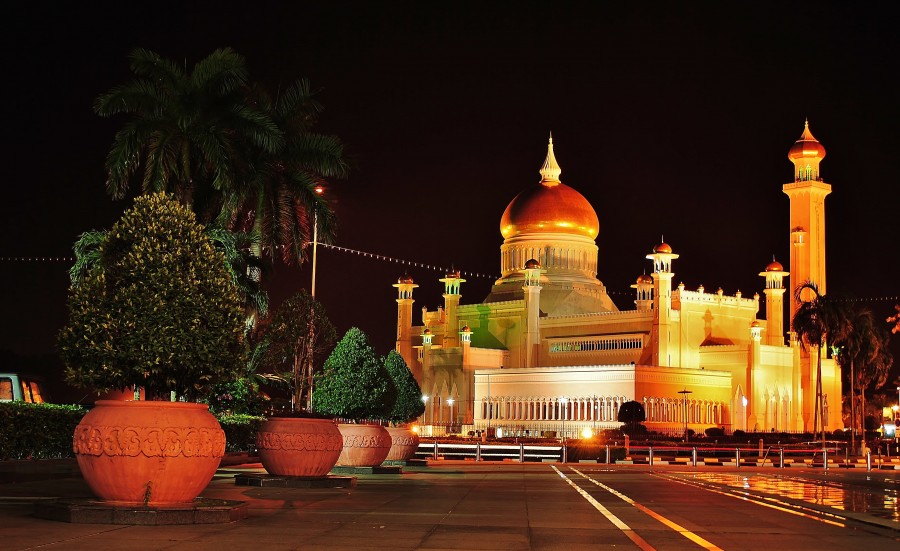
Omar Ali Saifuddien mosque in Bandar Seri Begawan.
In the exclave of Brunei – Temburong, there is Ulu Temburong National Park, where I organized an expedition to the primary rainforest. I was challenged by the rushing river and I bathed under the waterfall. I also climbed the platform at a height of 200m above the ground, from where I saw the jungle of Borneo and flying hornbills. Whilst in Temburong I didn’t miss the Peradayan Forest Reserve, where I crossed the trails of the Borneo jungle.
Contrary to what most people think, a trip to Brunei is not a journey for tourists interested in Islam. Brunei’s mosques are of course interesting and I recommend their exploration for a better cultural experience, but I was mostly interested in Brunei itself and the natural beauty. People are also kind and helpful, and I can not say anything bad about them.
An additional experience is the small town of Seria, colonized by the British oil industry Shell. In Seria, I saw the Billionth Barrel of Oil monument, interesting factories, oil pumping machines and a museum. I still spent most time on the beach, which is a pleasant walk through green areas, palm trees and oil pumping machines.
For all the above reasons I do not agree that in this quiet, peaceful country “there is nothing to see”, and it is certainly not boring. I recommend its exploration, but I also advise to use my travel reports as guides to Brunei.
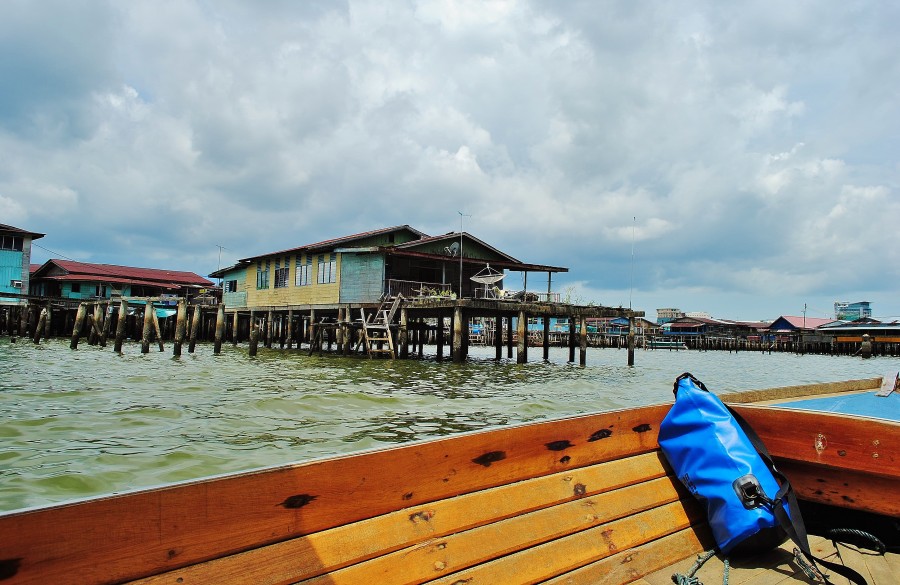
Village on the Brunei River – Kampong Ayer.
Brunei – the present times
Economy:
Brunei is a small country with small but a powerful economy. The well-being of Brunei is based on its oil and gas, which account for 90% of national income. Brunei is the fourth oil producer of south-east Asia, making on average 167,000 barrels of oil per day. In addition, Brunei also invests in its national airline Royal Brunei Airlines, and wants to be the main hub of interchange between Europe and Australia. Most crops and animals are imported mainly from Asian countries. Brunei is also highly dependent on imported cars and electrical parts. Brunei is generally an economically stable country, and it also pays its citizens towards health care, housing and rice. Unemployment stands at 6%, although Brunei is so rich and the sultan is so generous that he helps his citizens.
Financial and banking sector are getting more important, and also tourism but still less comparing to the neighbouring countries. Brunei has also good currency – Brunei dollar, which is directly interchangeable with Singaporean dollar. Brunei has also good infrastructure and modern telecommunication system.
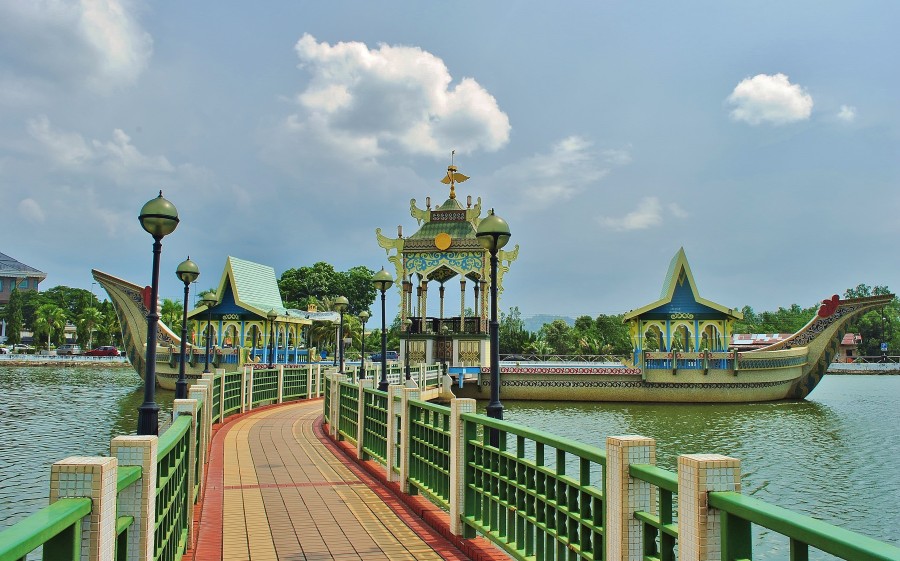
A boat on a pond, in the area of Omar Ali Saifuddien mosque.
It’s important that Brunei is an absolute monarchy, what in my point of view has its advantages too, because the country is governed only by one person, and not as it is in the British parliament where everybody wants to rule, what means that socially and culturally Britain becomes a failure.
Education:
The Sultanate of Brunei spends some of the money from the oil and gas industry for education, and as a result all primary and secondary schools are free. Education is compulsory from 5 to 16 years of age, and education is in English, Chinese and Malay. The degree of literacy is 96.4%.
Health:
Health Service in Brunei is at a high level and it`s free for all citizens and residents. Sultan also sponsors overseas operations that are not available in Brunei. The average life expectancy is 74 years, and children mortality under the age of 5, is 10 per 1000. HIV epidemic is not common in Brunei. On average, there are about 200 infected.
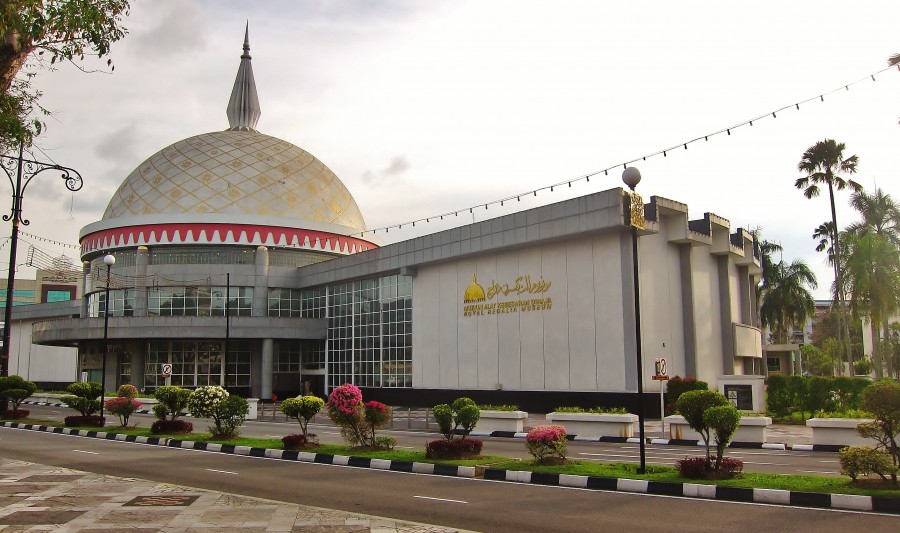
The Royyal Regalia Museum in BSB.
Culture/Religion:
Brunei is a Muslim country, with a “gentle release”. Although Islam is also the national philosophy of Brunei, what can be seen all over the country, Islam is practiced by only 67% of people. 10% are Christian and 13% are Buddhists. For a Muslim country things such as: women’s rights, medical care, right to divorce and custody of children, employment and gaining citizenship, I describe as liberal. The difference between the sexes is in the inheritance law, which works in favour of men. Brunei is inhabited predominantly by Malays, but also by the Chinese and minorities from Borneo.
Despite the fact that Islam is not only a religion but also an ideology and philosophy of Brunei, I think the this Muslim nation has realized that Allah was only a poet speaking the language of metaphors and not a literal propaganda, and that he also gave them freedom of choice and common sense. This is something what for example: Saudi Arabia , Yemen, Somalia, Pakistan and many other Muslim countries are not able to understand. Bravo Brunei!
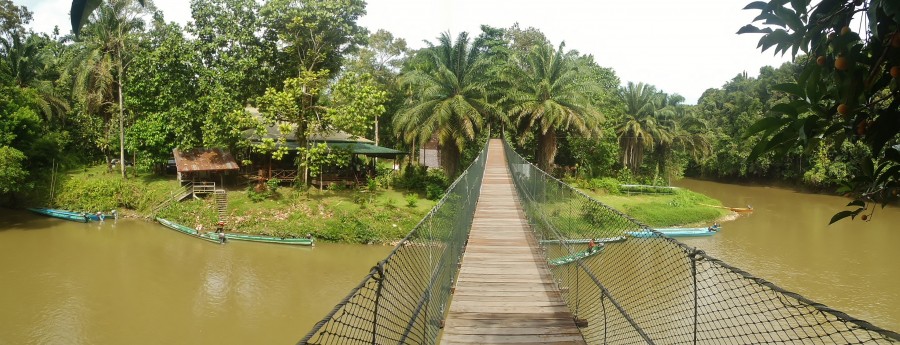
River and a bridge on ropes in Ulu Temburong National Park, in Brunei.
Media:
Media in Brunei promotes propaganda of absolute love to the Sultan. On press freedom index Brunei is on 125 place, what means that the press is not free.
In my personal opinion Muslims should never complain about the lack of freedom of speech, because apparently all their happiness comes from the Koran. Besides, the Sultan is very good to his people and the Bruneians are not always grateful to him. When I was in Brunei somebody showed me beautiful estates that the Sultan built for the poor. But they poor did not thank the Sultan for the goodness of his hearts but complained that the free apartments were too small. In that case I do not think that freedom of speech is needed.
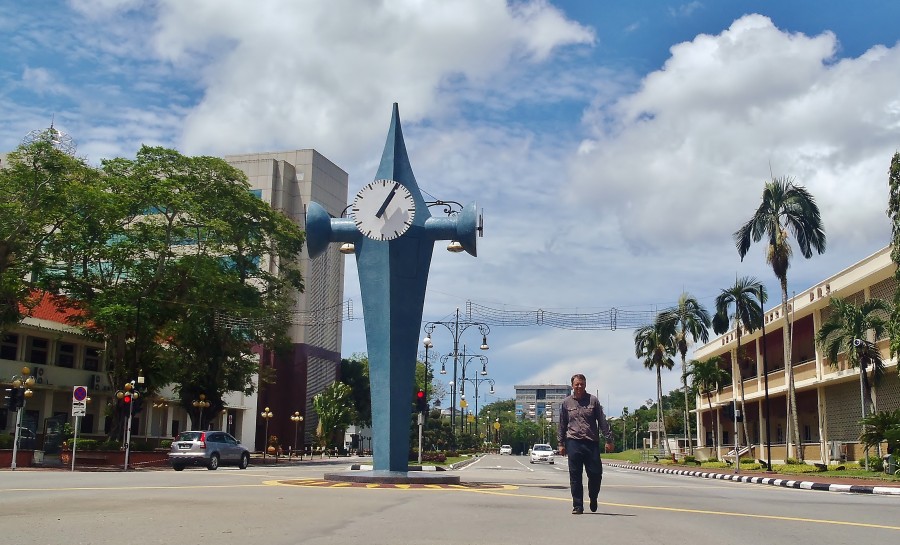
In front of the famous clock in Bandar Seri Begawan; Brunei.
Environmental problems:
Brunei is a small country, but harms wildlife too. The biggest environmental problems of Brunei: gases which cause destruction of the ozone layer, incompetent utility of rubbish, unintentional killing of animals and littering. In addition to all the rich mosques and residences in Brunei, there are also dirty beaches and acid rain caused by gases released into the atmosphere. Plastic bags are also a big issue because they become plastic rubbish after use. In Brunei however, there is Temburong National Park, with a beautiful rain forest providing home to all the exotic animal species. The Government of Brunei also advertises its oil extraction platforms as environmentally friendly, because they provide home to marine life. Brunei museums have posters showing life of sea creatures underneath the platforms, in harmony and immunity from drilling. To what extent this is true I do not know, but I know that it would be better without the platforms, because life-giving sun rays are not able to get through the oil rigs. When it comes to protecting the environment, Brunei has still a lot to do but I think I will shake their hands for the efforts and their first achievements.
History of Brunei
Brunei is one of the ancient countries of Asia, which was found around the VIII century. Main religion, Islam came to Brunei around the XV century through merchants and travellers from the Middle East.
Around XVI century Brunei became a local power and at that time Sultan Bolkiah conquered not only the whole of Borneo but also the Philippines.
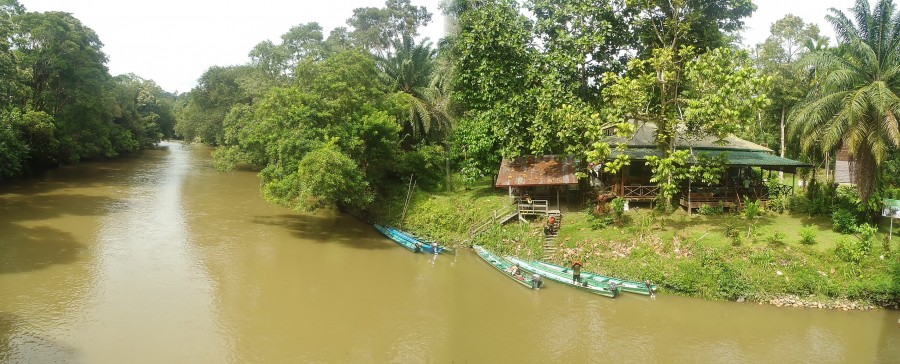
A vew of river in the Ulu Temburong national park.
At the end of the XIX century the British Empire started to be interested in Brunei. In 1838, British explorer James Brooke reached the island of Borneo. It was a good time for the Empire because at that time piracy was extremely violent, and Brooke was able to deal with it. As a reward, Sultan gave him the area of what today is Sarawak and named him Raja. This was however not enough for Brooke and the European and American con artists, who forced Sultan to give him more of his territory. Once a large and powerful Brunei was now divided in two parts and it remains in the same small form today. Fortunately for Brunei in 1929 they discovered “black gold” – oil, and the British Empire sniffing the next deal, signed an agreement in 1905 to “protect” Brunei, what really meant that Brunei become its protectorate. In the meantime, there were several Sultans, and in 1959 a new constitution was written, what gave Brunei partial independence from Britain. The Empire still exercised control over the defense and foreign policy.
In the meantime, Brunei was also under the influence of the Spanish, but the epidemic of cholera causes the Spaniards to run away to the Philippines, leaving behind destruction and chaos, and Brunei lost a lot of its territory to the European colonizers (White Rajas). For example the island of Luzon, which today belongs to the Philippines, Brunei lost to Spain.
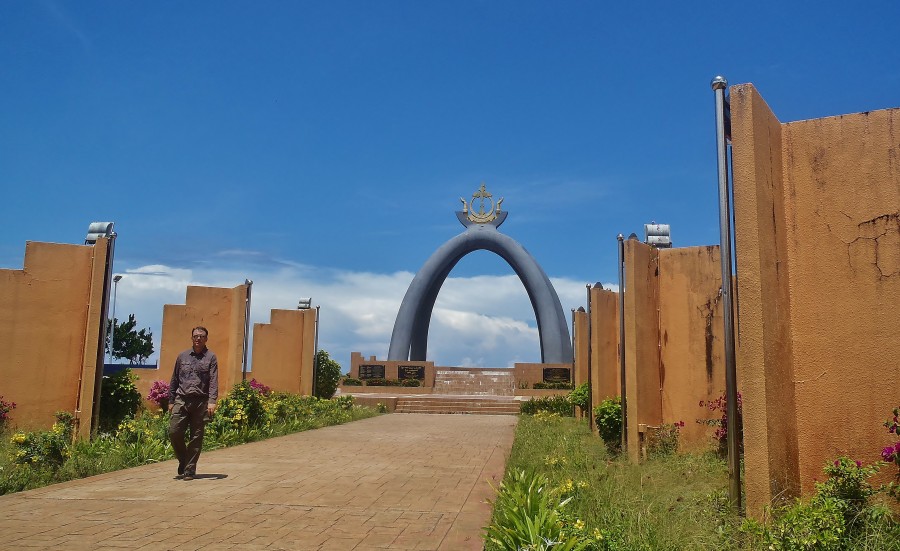
Seria – in front of the Billionth Barrel of Oil monument. The Sultanate of Brunei.
In the 50s of the twentieth century efforts were made to connect with the state of Sarawak and the newly formed Malaysia, but in the end it was decided that Brunei will be an independent country. Since then, with the oil and the growing economic power, Brunei has lived in prosperity and stability. Strong economy also led to improved hygiene, reduced infant mortality and immunity from malaria. With the money from, every Sultan of Brunei build wealth, bearing in mind comfort and health of his people – or at least so it seems. Brunei achieved full independence from the United Kingdom on December 31, 1983. The next day Brunei became a part of the Commonwealth, and shortly afterwards a part of ASEAN. In 1984, Brunei became the 159th member of UN.
Map
Location
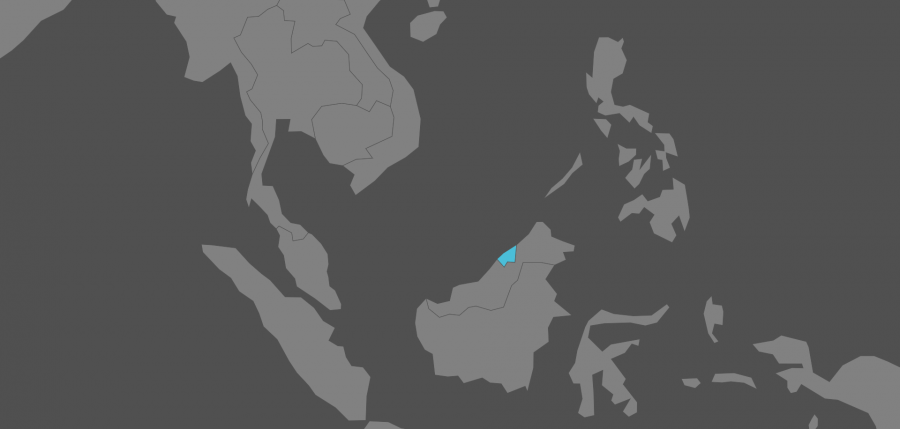
Practical information
Tourist Visa – Europeans get a free stamp, which entitles us to a single entry, for no longer than 90 days.
Safety – Brunei is a very safe country. People are very nice, polite and helpful.
Moving around the country – in the capital of Bandar Seri Begawan (commonly BSB) there is a very well organized network of city buses. There are also boats and buses to the port of Muara, from where there are boats to the Malaysian island of Labuan. I also used hitchhiking many times. In 2019, there will be also a bridge connecting Brunei with its exclave Temburong.
Prices – (in 2018 when £ 1 = almost 1.7 BND)Brunei is more expensive than neighboring Malaysia, but these are not prices that could cause a heart attack. In 2012, I paid 10BND for a bed in a dormitory in the BSB, while in 2018 I paid 18BND. The cheapest place to sleep is the Pusat Bulia dormitory, which in 2019 costs 15 BND per night. For example, in the main city of Temburong, in Bangar, I also slept in Pusat Bulia and paid only 10 BND. For a meal I paid on average 4-6BND, while tea and coffee costs an average just of over 1 BND. For a 2 hour boat cruise to the largest water village – Kampong Ayer and to the mangrove forest, I paid 30 BND , but I had to bargain down from 50BND. One bus ride is 1BND. Only a bus ride to the town of Seria which lies 100 km away from BSB, a bus ticket costs 6 BND. Entrances to museums are free. I therefore consider Brunei to be a sensibly priced country to travel.
Brunei Dollar is an important currency. Since 1967, on the basis of an agreement between Brunei and Singapore, the exchange rate is set at 1: 1 with the Singapore dollar.
Climate – the climate in Brunei is hot and humid. The average annual temperature varies slightly from more than 30°C during a day and 22ºC at night. The heaviest rainfalls are from October to December, and the driest months are during February and March. Any time of a year is good to visit the Sultanate of Brunei, no matter whether you want to go shopping, spend time on the beach, or go for a jungle expedition.



